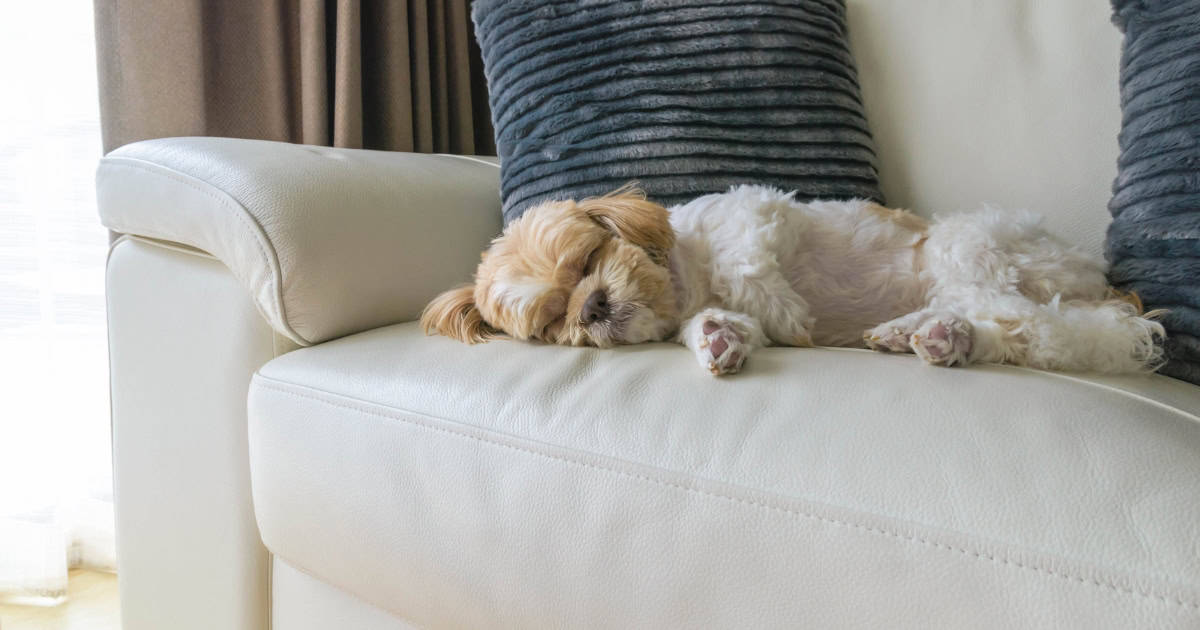Dogs
Common Problems & Solutions to Get Puppies to Sleep
Getting a puppy to sleep through the night can be a challenge for many new owners. Puppies often face issues like excess energy, separation anxiety, or teething discomfort, making bedtime stressful.
In this blog, we’ll cover common puppy sleep problems and practical solutions to help your pup rest peacefully.
My Puppy Has Too Much Energy at Bedtime
It’s common for puppies to have bursts of energy at bedtime, making it hard for them to settle down. Puppies are naturally playful and curious, so without enough stimulation during the day, they can remain restless at night. This can result in pacing, barking or chewing to release pent-up energy.
Without a proper wind-down routine, your puppy may struggle to relax, causing frustration for both you and your pup.
To help your puppy sleep better, ensure they get plenty of physical and mental exercise during the day. Engage in active play, like walks or fetch, to burn off energy.
Additionally, puzzle toys can mentally challenge your puppy and tire them out by making them think while they play. As bedtime approaches, shift to quieter activities to help them relax.
My Puppy Keeps Crying When I Leave Them Alone at Night
Many puppies struggle with separation anxiety, especially when left alone at night. Being away from their littermates or humans can make them feel vulnerable and scared, leading to constant crying or whining. This is their way of seeking comfort and attention, as they aren’t yet used to being alone.
Without the reassurance of company, your puppy may find it difficult to settle, creating stressful nights for both you and your puppy.
To help ease your puppy’s separation anxiety, create a comforting bedtime environment. Introduce anxiety toys like the Heart Beat Sheep, which mimics a heartbeat to simulate the presence of a companion. Placing soft blankets with familiar scents or a comforting plush toy in their sleeping area can also help.
Gradually train your puppy to sleep alone by starting with short periods of separation during the day, building up to longer stretches at night.
My Puppy Wakes Up in the Middle of the Night to Go to the Toilet
Young puppies have small bladders and limited control, which means they often wake up during the night needing to go to the bathroom. This can disrupt their sleep routine and leave them feeling restless, while owners may be waking up multiple times each night to take them out.
Until puppies develop better bladder control, nighttime potty breaks are common and can be frustrating if not managed properly with the right routine.
To reduce nighttime disruptions, establish a consistent bathroom schedule for your puppy. Take them out just before bedtime to ensure they’ve relieved themselves. For younger puppies, expect the need for a mid-night potty break until they can hold their bladder longer.
Gradually extend the time between bathroom breaks as they grow. Being patient and sticking to a schedule will help both you and your puppy enjoy more restful nights as their control improves.
My Puppy Won’t Sleep in Their Crate and Keeps Barking
Some puppies resist sleeping in their crate, feeling confined or anxious in the new space. Barking is their way of expressing discomfort or trying to get your attention. This issue can be frustrating for owners and stressful for puppies who aren’t yet used to the crate environment.
Puppies may associate the crate with isolation rather than safety, which can make bedtime difficult and cause them to bark throughout the night.
To help your puppy adjust, make the crate a positive and comforting space. Start by introducing the crate during the day with soft bedding, toys and treats, allowing your puppy to explore it on their own terms. Avoid using the crate as punishment to prevent negative associations.
Gradually increase the time they spend inside the crate, offering rewards and praise. This will help your puppy feel safe and comfortable, reducing nighttime barking.
My Puppy is Teething and Seems Uncomfortable at Night
When puppies are teething, they often experience discomfort and pain in their gums, making it hard for them to settle down at night. This teething phase typically starts around 3 to 4 months of age and can cause restlessness, whining and excessive chewing.
The discomfort can lead to disrupted sleep for both you and your puppy, as they try to soothe their aching gums by chewing on anything within reach.
To help ease your puppy’s teething discomfort, provide safe and durable teething toys designed specifically for puppies. These toys can help massage sore gums and satisfy their natural chewing instinct.





